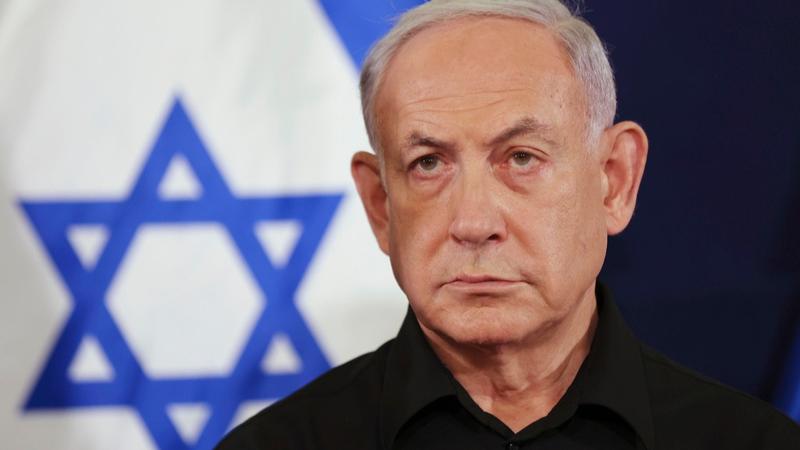Published 23:28 IST, May 9th 2024
Netanyahu Wants Rafah Assault 'Walled Off' From Gaza Ceasefire Deal: Report
Israeli PM Netanyahu has repeatedly said that Israel would carry out ground operations in Rafah, with or without a ceasefire deal.

Jerusalem: Quoting four current and one former US officials who are familiar with the ongoing Gaza ceasefire negotiations, NBC reported on Friday that Israeli Prime Minister Benjamin Netanyahu wants the Rafah assault ‘walled off’ from the discussions. Netanyahu, reportedly, will not consent to any ceasefire deal that would impede its ability to continue military operations in Rafah, even during a potential ceasefire.
An Israeli official denied the report, citing remarks made by the nation's defence minister, Yoav Gallant, who said that “this operation will continue until we eliminate Hamas in the Rafah area and the entire Gaza Strip or until the first hostage returns.”
The state of the Rafah assault
Earlier this week, Israel began what US officials characterised as a ‘limited’ operation in Gaza when its forces seized and closed the Rafah crossing after asking tens of thousands of Palestinians to leave the city. On Thursday, Israel bombarded parts of eastern Rafah in what is being feared as a precursor to a ground operation.
On Friday, Reuters, citing Hamas and Islamic Jihad statements, said that Palestinian militant groups were already firing anti-tank rockets and mortars at Israeli tanks massed near the eastern outskirts of Rafah city.
The IDF, for its part, claims that it is carrying out ‘precise’ counter-terrorism operations in east Rafah, with the Times of Israel reporting that Israeli forces had killed 50 gunmen in the raids and discovered 10 more of Gaza's infamous tunnel shafts which are set to be demolished.
The report noted that the IDF, currently has no plans to expand its evacuation order to other parts of Rafah and that the combat operations in the area remain limited.
Israel insists that its operations in Rafah are necessary to eliminate Hamas and its affiliated groups from Gaza, with such militant groups reportedly sheltering in Rafah as they were pushed out from other areas of the Gaza Strip by the IDF.
The international community, including the US, have strongly advised Israel against carrying out a ground operation in Rafah where over a million Palestinians had taken shelter to seek refuge from combat elsewhere in Gaza.
The US has even gone so far as to halt a shipment of bombs to Israel last week. In an interview with CNN, President Joe Biden explained that the US had held up weapons that have been used “historically" to attack cities like Rafah.
Furthermore, in his strongest condemnation to date of Israeli combat operations in Gaza, Biden said that the US would not supply weapons to Israel if it decides to move its troops into Rafah.
On Friday, even as Israel strongly reacted to this declaration from its closest ally, the White House doubled down, with National Security Spokesman John Kirby telling the press that Biden does not believe that “smashing into” Rafah will advance the Israeli or American objective of defeating Hamas.
He said that the US believes there are ‘better ways’ of going after the remnants of Palestinian militant groups in Rafah than launching a major ground operation.
Furthermore, Kirby pushed back against claims that Biden's declaration would embolden Hamas to reject compromises during ceasefire negotiations. Instead, he said that Hamas' hand at the negotiating table would be strengthened if Israel decided to go ahead with a major ground operation in Rafah.
“If I’m Mr Sinwar, and I’m sitting down in my tunnel… and I’m seeing innocent people falling victim to major significant combat operations in Rafah, then I have less of an incentive to want to come to the negotiating table,” said Kirby.
What about the ceasefire negotiations?
Meanwhile, the ongoing ceasefire operations in Cairo appeared to have hit a stalemate, with reports indicating that representatives of Hamas and Israel have left Cairo. Earlier this week, Hamas had said that it had accepted a version of the ceasefire deal presented by Egyptian and Qatari officials though Israel later said that parts of the deal had been amended in ways that were ‘unacceptable’ to it.
While the White House expressed optimism that a deal could still be reached and both sides could work towards a compromise, neither Israel nor Hamas seemed to share this sentiment. On Wednesday, Hamas issued a statement saying that the group would not agree to change the terms of the deal that it had already agreed to and that Israel was not serious about reaching a deal.
On the other side, the Times of Israel quoted Channel 12 coverage as saying that Israeli leaders consider the gaps between the two sides on the ceasefire deal, particularly in regard to hostage exchanges, to be ‘extremely wide’ and would thus focus their attention on continuing the operation in Rafah.
Nevertheless, the Times of Israel also reported that Israeli negotiators had sent a document to the mediators in Gaza before leaving which detailed all the specific objections their side had to the version of the ceasefire deal accepted by Hamas.
Updated 23:28 IST, May 9th 2024




